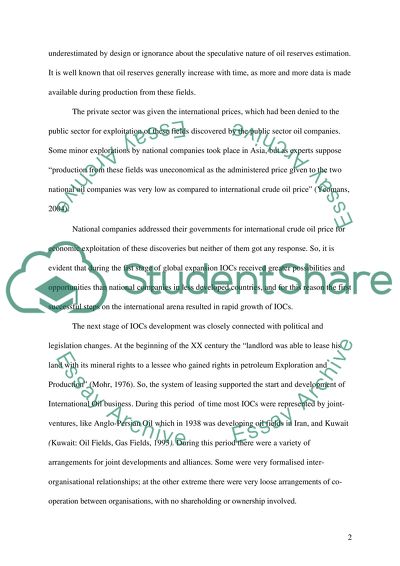Cite this document
(“The IOCs in the oil industry Essay Example | Topics and Well Written Essays - 2500 words”, n.d.)
The IOCs in the oil industry Essay Example | Topics and Well Written Essays - 2500 words. Retrieved from https://studentshare.org/technology/1519163-the-iocs-in-the-oil-industry
The IOCs in the oil industry Essay Example | Topics and Well Written Essays - 2500 words. Retrieved from https://studentshare.org/technology/1519163-the-iocs-in-the-oil-industry
(The IOCs in the Oil Industry Essay Example | Topics and Well Written Essays - 2500 Words)
The IOCs in the Oil Industry Essay Example | Topics and Well Written Essays - 2500 Words. https://studentshare.org/technology/1519163-the-iocs-in-the-oil-industry.
The IOCs in the Oil Industry Essay Example | Topics and Well Written Essays - 2500 Words. https://studentshare.org/technology/1519163-the-iocs-in-the-oil-industry.
“The IOCs in the Oil Industry Essay Example | Topics and Well Written Essays - 2500 Words”, n.d. https://studentshare.org/technology/1519163-the-iocs-in-the-oil-industry.


